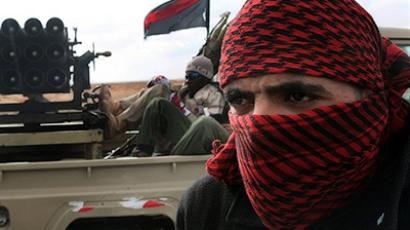“Somalia scenario” in Libya a real threat says Russian politician

Deputy Prime Minister Sergey Ivanov has warned that unless the international community learns more about the so-called Libyan opposition the situation in the country might spiral out of control.
Ivanov, addressing a session of the International Affairs Council in New York City, said that the adoption of Resolution 1973 by the UN Security Council was a hasty decision, but the international community had “understandable” reasons for implementing it. "The reasons for [passing Resolution 1973, which authorized “all necessary measures” to protect Libyan civilians] were obvious: Gaddafi was physically destroying his compatriots,” the Deputy PM said. “But the text of the resolution did not make it clear when the troops can and should be used, and when their use should be refused.” Ivanov told his American audience that the document did not provide the international forces with clear rules of engagement, nor did it help to distinguish the armed opposition from the civilian population. “When we see on TV that representatives of the so-called opposition are engaged in combat and carry bazookas and Kalashnikov rifles then we have a question: is this the civilian population we are talking about?” The Russian Deputy PM said that another problem with the UN-sanctioned mission was that nobody was familiar with the Libyan opposition and their goals. This, he believes, could lead to a worst-case scenario, similar to what occurred in Somalia."Do you need a Somali scenario in Libya? I doubt it. But it is a real threat," he said. “A Somalia-like situation could be the worst possible outcome of the developments in Libya, and is quite probable.”Lavrov stressed, however, that nobody in Russia is arguing against the idea that "Gaddafi is guilty." Russia abstained during the voting on Resolution 1973 in the UN, but observed all points of the document. In his speech, Ivanov also touched upon the topic of Russian-US relations, saying the next step in the “reset” process must be in the field of economics. Only strong economic links between the two countries, he said, could cement earlier agreements in the realm of security cooperation. He then expressed hope that Russia-US trade would grow, adding that Russia expected to join the World Trade Organization (WTO) this year – a long awaited step that would greatly assist Russia’s integration into the international economy. “We expect we'll be admitted there as early as this summer or autumn," Ivanov said. "This term is quite realistic as long as we can see all the circumstances.” He then expressed his hope that the US Congress would abolish the Jackson-Vanik amendment, which he called “a rudiment of the Cold War era” that continues to hamper trade relations between the two nations. The Deputy PM acknowledged that Russia was aware that Georgia, a WTO member with veto powers – and its position on Russia’s membership into the international trade organization, but said that the problem was separate and purely political by nature. "The problem has an exclusively political underpinning and we'd like to resolve it on our own," Ivanov said. In more far-reaching endeavors, Ivanov floated the idea of Russia and US jointly financing ambitious space projects like the manned flights to the Moon or Mars. "The Russian Space Agency Roscosmos and NASA are long-time successful partners in space exploration, but the issues we'll have to resolve relate to the period after 2020 rather than to the current projects," Ivanov said. "The Mars or Moon projects are very expensive but all the governments have interest in a rational assimilation of budgetary funds," he said.














